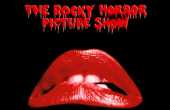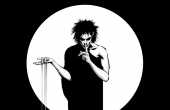Monique
Contributing writer for The Artifice.
Contributor II
- Plebian Penman
- Lurker
- Pssst
- Hand Raiser
- Vocal
- Sharp-Eyed Citizen
- Town Watch
- Detective Deskman
- Penman Patrol
- Guide editor
- Article of the Year
- ?
- Articles
4 - Featured
4 - Comments
109
- Ext. Comments
68 - Processed
43 - Revisions
42
- Topics
17 - Topics Taken
1 - Notes
36
- Topics Proc.
9 - Topics Rev.
1
- Points
1781 - Rank
59 - Score
1176
Latest Articles
Latest Topics
Pro-Wrestling: A Fan's PrimerPro-Wrestling has been around for decades and has tens of millions of fans, but is often misunderstood by those on the outside. Moreover, the complex and serialized nature of pro-wrestling story-telling makes entry as a new fan difficult. A complete overview of the sport up through present trends and story-lines would be interesting: formation and history of the sport, brief summation of the legal players and corporate/owner factions, explanation of terminology used in the sport, brief summation of story-line factions (faces/heels/teams), and an explanation of why ‘ it’s scripted, not fake ‘ is essential to understanding the appeal of the sport.
|
Transgender Representation in TelevisionWith the rise of awareness of transgendered individuals, a wide look at transgender representation on television could show how the definition of their cultural identity has changed, and how it can still improve. Consider to what extent "freak show" portrayals (a trans person as an oddity or comic relief) have been the bulk of trans portrayal in the past and how that is evolving. Possible inclusions: Denise Bryson (Twin Peaks character), RuPaul’s Drag Race, the media coverage of Caitlin Jenner, the new trans character on Sens8, Jazz Jennings (a young trans model doing a national ad campaign for Clean & Clear). This could also be done with examples from movies, and be a topic for the Movie section. Buffalo Bill (Silence of the Lambs), The Crying Game, and Better Than Chocolate come to mind. This topic is currently being discussed around the internet — do thorough searches to make sure you’re not duplicating another article.
|
Actors Playing ThemselvesIn _The Big Bang Theory_, Will Wheaton plays the character "Will Wheaton" but that character is an exaggerated version of Wheaton’s public characteristics, it’s not meant to be a true-to-life version of himself. The same is true for James Van Der Beek’s character in _Don’t Trust the B— in Apt 23_; though named "James Van Der Beek", we are not supposed to think that character legitimately portrays Van Der Beek’s true character. What challenges do actors face when playing "themselves"? Research through interviews might provide insights into how the actors feel. It seems like both men are having fun with the exaggerations, but are there difficulties? Do they struggle with fans who are unable to make the distinction? Do such roles diminish an actor’s credibility by making their career into a joke, or does it create additional name recognition and re-ignite careers? Probably a third actor/role should be added to round out this discussion.
|
games Write this topicVideo Game Music Overview: Industry Standards, Careers, AwardsOnce upon a time, the music in video games was an after-thought — small, repetitive loops of tinny electronic sounds was the norm. With some games being built to hold up to literally hundreds of hours of game play, the music scores have gotten considerably more impressive. A friend of mine was recently surprised to realize the cool song playing on her Pandora "movie sound track" list was actually from TES5: Skyrim. I would love to see an in-depth article about working in the video game industry as a musician. Are musicians permanently on staff, or are they contract-hire? Are most scores now done with orchestras, or does electronic production still rule? To what extent do video game musicians need to learn to code? How hard is it to break in? Do the musicians also create sound-effect loops, or is that a different specialty? Are there awards for video game music? Is there cross-over between video game musicians and those who regularly work in television or movies?
|
arts Write this topicDomestic Violence in Country MusicDomestic violence is a prominent theme in country music. Songs like "Goodbye, Earl", "Gunpowder and Lead", and "Independence Day" (to name just three) feature violent, deadly retribution from women onto the men who have abused them. But while "Independence Day" is a somewhat mournful song, the other two mentioned are upbeat tunes, almost party songs, and there are many others. What is it about the country music demographic that makes these songs not only acceptable, but popular? Are the rates of domestic violence higher in the demographic that listens to country music, or lower? Since the popular versions of this song form promote retributive violence by a woman against her husband, is it possible to track the incidents of wife-on-husband violence w/in the demographic to see if it’s higher than average? No other genre of music has a niche just for this kind of song. I’d like to see someone explore why.
|
Spin-Offs: The Good, the Bad, the UnrecognizableWhen it’s time for a popular series to come to an end, the decision is sometimes made to extend the story by creating a new show using secondary or background characters. Sometimes these efforts are a success ("Saved by the Bell" was a bigger hit than "Good Morning, Miss Bliss"); sometimes they could/should have worked but didn’t ("The Lone Gunmen" from "X-Files"); sometimes they were ill-conceived from the start (why was "The Raven" spun-off from "Highlander" and not, say, "The Joe and Methos Show"?). Why do some spin-offs work and others crash and burn? How do the elements of setting, story, characters, and actors combine to create something fresh and exciting from a fading star? Are there spin-offs that might have been successful on their own merits if they weren’t being compared to a beloved predecessor? Are there examples of shows that were more successful than they merited, due to the reflected glow of their source material? Are there spin-offs-in-name-only that bore so little resemblance to their original shows that they were unrecognizable as being part of the same world?
|
literature Write this topicYA Dystopia Glut: A Sign of Despondency or Optimism?After the success of the Harry Potter series, the YA market exploded. The books released by publishers under the YA category today are not as "dumbed-down" or childish as was the trend for a long time — offerings for the last decade have tackled many social issues and provided bleak scenarios of the future. As with HP, the success of the Hunger Games series has also inspired a number books and series, except the HG wave is filled with post-apocalyptic or near-apocalyptic settings. My initial reaction to the premise of the Hunger Games series was sadness — I was not interested in reading about children fighting to the death for food. Recently at a convention I asked the group about whether or not they believed the dystopia trend signals a despondency amongst the young people reading them — a lack of hope for the future of the world. A junior high teacher spoke up to say no, that she hears that a lot but she believes the trend is a hopeful one, because even though the main characters of these novels are struggling to stay alive in ruined worlds, the fact is that within the story, humanity has survived whatever collapse has been portrayed, and the young people in the story are re-building a better society. I’d be interested in seeing a well-researched article from a psychological perspective that compares several different popular YA series, and discusses the issue of hopefulness within those series. I’m putting this in Literature, but it could also be an article for the Writing category, depending on approach.
|
comics Write this topicThe Return of Bloom CountyBerkeley Breathed has announced that he is picking up the adventures of Milo, Opus, and the rest. This is a good opportunity to do a Bloom County retrospective, and possibly muse a little on dangers of an artist returning to a creative well. Older fans will compare the new work to the previous; new fans will not have the base to draw from and will need the work to be fresh and compelling before they’ll be drawn into it. Could go in Arts or Writing categories, either, depending on the focus. |
Latest Comments
| Labyrinth (1986): Power, Sex, and Coming of Age | |
Not over-share at all, just the opposite. The most important, most vital thing a story can do is change the way we view or interact with the world by teaching us about others and ourselves. The effects of the “you have no power over me” scene stayed with me my entire life as well, and made a difference. It’s why I wrote this article. One of the things that I love about the Artifice is that it’s a wonderful platform to have these in-depth discussions about the power of Art on our lives. Take care, and thanks for commenting. | Labyrinth (1986): Power, Sex, and Coming of Age |
Yes, the world is a sadder place for no longer having a David Bowie in it. Fortunately his art lives on. Thanks for the thoughtful comments! | Labyrinth (1986): Power, Sex, and Coming of Age |
Very eloquent response, Jose, thank you! | Labyrinth (1986): Power, Sex, and Coming of Age |
Well-researched article, very well laid-out. Thank you for the research! | The Origins of Middle-Earth: Gods, Poems, and Dragons |
A lot of good points here (and in the comments thus far). Have to say that one of my pet peeves is when an author is so intent upon showing how much research they’ve done than in telling the story. This is a bigger problem with text than with film, but I’ve seen many elements in both kinds of work that were shoe-horned into the story to show off authorial knowledge. It always bugs me. | The Debatable Importance of Historical Accuracy in Period Films |
As an 80’s teen, I saw all the Hughes movies in the theater, long before I was consciously examining media. In my experience, they’ve just always been around… but you’re right — the reason they’re still referenced is due to how accurate, thoughtful, and relevant the character portrayals are. Thank you for shining a spotlight on an artist I haven’t given enough thought to! | John Hughes Remains Relevant: Don't You Forget About Me |
Fantastic analysis. Thanks so much for writing this! | Firefly: A Freudian and Jungian Analysis |




As I said to anonymous above, giving us strength and tools with which to face our own villains is the best power that Story has. I’m really glad to see readers sharing this kind of experience; I think it’s the best legacy _Labyrinth_ could have hoped for.